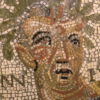Nationality is a Janus, facing both ways. So far as it stands for the right of a people to govern itself, it stands for freedom. So far as it stands for the ambition to govern other people, or to destroy them, or to shape them into an alien world, it stands for domination. Throughout history it has stood for both.
G. Lowes Dickinson (1862-1932) British political scientist and philosopher [Goldsworthy "Goldie" Lowes Dickinson]
“The War and the Way Out: A Further Consideration,” sec. 3, Atlantic Monthly (1915-04)
(Source)
Quotations about:
conquest
Note not all quotations have been tagged, so Search may find additional quotes on this topic.
A war which is destroying men as they have never been destroyed before, from which at the best the nations will emerge permanently degraded in their stock, poorer in physique, duller in intelligence, weaker in will than they went in, this war is to be protracted until the whole manhood of Europe is decimated, in order — in order to what? Let us ask in detail.
In order, we are told, that the Germans may ‘feel they are beaten.’ And then? They will be good in future? They will admit they were wrong? They will lick the hand that chastised them? Who believes it? The more completely they are beaten, the more obstinately they will be set on recovery. When France was beaten to the dust in 1870, did she repent for having provoked the war? On the contrary, she gathered up her forces for revenge. And Germany will do the same.G. Lowes Dickinson (1862-1932) British political scientist and philosopher [Goldsworthy "Goldie" Lowes Dickinson]
“The War and the Way Out: A Further Consideration,” sec. 2, Atlantic Monthly (Apr 1915)
(Source)
What reason, what prudence, is there in wishing to glory in the greatness and extent of the empire, when you cannot point out the happiness of men who are always rolling, with dark fear and cruel lust, in warlike slaughters and in blood, which, whether shed in civil or foreign war, is still human blood; so that their joy may be compared to glass in its fragile splendor, of which one is horribly afraid lest it should be suddenly broken in pieces.
[Quae sit ratio, quae prudentia, cum hominum felicitatem non possis ostendere, semper in bellicis cladibus et in sanguine ciuili uel hostili, tamen humano cum tenebroso timore et cruenta cupiditate uersantium, ut uitrea laetitia comparetur fragiliter splendida, cui timeatur horribilius ne repente frangatur.]
Augustine of Hippo (354-430) Christian church father, philosopher, saint [b. Aurelius Augustinus]
City of God [De Civitate Dei], Book 4, ch. 3 (4.3) (AD 412-416) [tr. Dods (1871)]
(Source)
(Source (Latin)). Alternate translations:
You cannot show such estates to be anyway happy, as are in continual wars, and constantly in terror, trouble, and guilt of shedding human blood, though it be their foes’; with what reason or wisdom any man doth wish to glory in the largeness of empire, since all their joy is but as a glass, bright and brittle, and evermore in fear and danger of breaking.
[tr. Healey (1610)]
Is it reasonable and wise to glory in the extent and greatness of the Empire when you can in no way prove that there is any real happiness in men perpetually living amid the horrors of war, perpetually wading in blood? Does it matter whether it is the blood of their fellow citizens or the blood of their enemies? It is still human blood, in men perpetually haunted by the gloomy spectre of fear and driven by murderous passions. The happiness arising from such conditions is a thing of glass, of mere glittering brittleness. One can never shake off the horrible dread that it may suddenly shiver into fragments.
[tr. Zema/Walsh (1950)]
You cannot show that men are happy who live always amid the disasters of war. It matters not whether the blood shed is that of fellow-citizens or of enemies; in any case it is the blood of men. The dark shadow of fear and the lust for blood are always with them. Any joy that they know is like the glitter of brittle glass, which inspires the frightful thought that it may suddenly be shattered.
[tr. Green (Loeb) (1963)]
Is it reasonable, is it sensible, to boast of the extent and grandeur of empire, when you cannot show that men lived in happiness, as they passed their lives amid the horrors of war, amid the shedding of men's blood -- whether the blood of enemies or fellow-citizens -- under the shadow of fear and amid the terror of ruthless ambition? The only joy to be attained had the fragile brilliance of glass, a joy outweighed by the fear that it may be shattered in a moment.
[tr. Bettenson (1972)]
Is it wise or prudent to wish to glory in the breadth and magnitude of an empire when you cannot show that the men whose empire it is are happy? For the Romans always lived in dark fear and cruel lust, surrounded by the disasters of war and the shedding of blood which, whether that of fellow citizens or enemies, was human nonetheless. The joy of such men may be compared to the fragile splendour of glass: they are horribly afraid lest it be suddenly shattered.
[tr. Dyson (1998)]
What reason or sense is there in wanting to boast of the size and expanse of an empire when you cannot show that its people are happy? Or why boast of an empire if its people always dwell in the midst of the disasters of war and the spilling of blood -- the blood of fellow-citizens or the blood of foreign enemies, but, in either case, human blood -- and always live under the dark shadow of fear and in the lust for blood? Any joy they have may be compared to the fragile brilliance of glass: there is always the terrible fear that it will suddenly be shattered.
[tr. Babcock (2012)]
Others lash the unknown seas with oars,
Rush at the sword, pay court in royal halls.
One destroys a city and its homes
To drink from jewelled cups and sleep on scarlet;
One hoards his wealth and lies on buried gold.
One gapes dumbfounded at the speaker’s stand;
At the theater, still another, open-mouthed,
Reels before crescendos of applause
From the tiers where mob and dignitaries sit.
Others are keen to drench themselves in blood,
Their brothers’ blood, and, exiled, change their homes
And winsome hearths, to range abroad for room
To live in, underneath a foreign sun.[Sollicitant alii remis freta caeca ruuntque
in ferrum, penetrant aulas et limina regum;
hic petit excidiis urbem miserosque Penatis,
ut gemma bibat et Sarrano dormiat ostro;
condit opes alius defossoque incubat auro;
hic stupet attonitus rostris; hunc plausus hiantem
per cuneos — geminatus enim plebisque patrumque —
corripuit; gaudent perfusi sanguine fratrum,
exsilioque domos et dulcia limina mutant
atque alio patriam quaerunt sub sole iacentem.]Virgil (70-19 BC) Roman poet [b. Publius Vergilius Maro; also Vergil]
Georgics [Georgica], Book 2, l. 504ff (2.504-513) (29 BC) [tr. Bovie (1956)]
(Source)
Virgil contrasting violent, ambitious, vain, and rootless life of city folk (evoking the Roman civil wars), in contrast to the bucolic peace and sense of home enjoyed by farmers.
(Source (Latin)). Alternate translations:
Some vex the Sea, and some to war resorts,
Attend on Kings, and waite in Princes Courts.
This would his Countrey, and his God betray
To drink in Jems, and on proud scarlet lye.
This hides his wealth, and broods on hidden gold,
This loves to plead, and that to be extold
Through all the seats of Commons, and the sires.
To bathe in's brothers blood this man desires.
Some banish'd, must their native seats exchange,
And Countries, under other Climates range.
[tr. Ogilby (1649)]
Some to the Seas, and some to Camps resort,
And some with Impudence invade the Court.
In foreign Countries others seek Renown,
With Wars and Taxes others waste their own.
And Houses burn, and household Gods deface,
To drink in Bowls which glitt'ring Gems enchase:
To loll on Couches, rich with Cytron Steds,
And lay their guilty Limbs in Tyrian Beds.
This Wretch in Earth intombs his Golden Ore,
Hov'ring and brooding on his bury'd Store.
Some Patriot Fools to pop'lar Praise aspire,
By Publick Speeches, which worse Fools admire.
While from both Benches, with redoubl'd Sounds,
Th' Applause of Lords and Commoners abounds.
Some through Ambition, or thro' Thirst of Gold;
Have slain their Brothers, or their Country sold:
And leaving their sweet Homes, in Exile run
To Lands that lye beneath another Sun.
[tr. Dryden (1709), l. 720ff]
Some rush to battle, vex with oars the deep,
Or in the courts of Kings insidious creep;
For cups of gem, and quilts of Tyrian, die,
Others remorseless loose each public tie:
On hoarded treasures these ecstatic gaze,
Those eye the Rostra, stupid with amaze:
This for the theatre's applauding roar
Sighs: with the blood of brothers sprinkled o'er
From their dear homes to exile others run,
And seek new seats beneath a distant sun.
[tr. Nevile (1767), l. 565ff]
Some vex with restless oar wild seas unknown.
Some rush on death, or cringe around the throne;
Stern warriors here beneath their footsteps tread
The realm that rear'd them, and the hearth that fed,
To quaff from gems, and lull to transient rest
The wound that bleeds beneath the Tyrian vest.
These brood with sleepless gaze o'er buried gold,
The rostrum these with raptur'd trance behold,
Or wonder when repeated plaudits raise
'Mid peopled theatres the shout of praise;
These with grim joy, by civil discord led,
And stain'd in battles where a brother bled.
From their sweet household hearth in exile roam,
And seek beneath new suns a foreign home.
[tr. Sotheby (1800)]
Some vex the dangerous seas with oars, some rush into arms, some work their way into courts, and the palaces of kings. One destines a city and wretched families to destruction, that he may drink in gems and sleep on Tyrian purple. Another hoards up wealth, and broods over buried gold. One, astonished at the rostrum, grows giddy; another peals of applause along the rows, (for it is redoubled both by the people and the fathers,) have captivated, and set agape; some rejoice when stained with their brother's blood; and exchange their homes and sweet thresholds for exile, and seek a country lying under another sun.
[tr. Davidson (1854)]
While others vex dark Hellespont with oars,
Leap on the sword, or dash through royal stores,
Storm towns and homesteads, in their vile desire
To quaff from pearl, and sleep on tints of Tyre;
While others hoard and brood on buried dross,
And some are moonstruck at the pleader's gloss;
While this man gapes along the pit, to hear
The mob and senators renew their cheer;
And others, reeking in fraternal gore,
With songs of triumph quit their native shore,
Abjure sweet home for banishment, and run
In quest of country 'neath another sun --
[tr. Blackmore (1871), l. 602ff]
Others are startling the darkness of the deep with oars, rushing on the sword's pint, winning their way into the courts and ante-chambers of kings; another is dooming a city to ruin and its homes to misery, that he may drink from jewelled cups and sleep on Tyrian purple; another hoards his wealth, and broods o'er buried gold; this man is dazzled and amazed by the eloquence of the rostra; that man the applause of commoners and senators, as it rolls redoubled through the benches, transports agape with wonder; they steep their hands in brothers' blood and joy, they change their homes and the thresholds of affection for the land of exile, and seek a fatherland that lies beneath another sun.
[tr. Wilkins (1873)]
Others vex
The darksome gulfs of Ocean with their oars,
Or rush on steel: they press within the courts
And doors of princes; one with havoc falls
Upon a city and its hapless hearths,
From gems to drink, on Tyrian rugs to lie;
This hoards his wealth and broods o'er buried gold;
One at the rostra stares in blank amaze;
One gaping sits transported by the cheers,
The answering cheers of plebs and senate rolled
Along the benches: bathed in brothers' blood
Men revel, and, all delights of hearth and home
For exile changing, a new country seek
Beneath an alien sun.
[tr. Rhoades (1881)]
These dare the ocean, and invite the storm,
This rage, and this the courtier’s wiles deform;
All faith, all right the traitor’s acts defy,
From gems to drink, on Tyrian purple lie;
One broods in misery o’er his hoarded gold.
And one in chains the people’s plaudits hold.
There stains of blood pollute a brother’s hand,
And he in terror flies his father’s land.
[tr. King (1882), l. 514ff]
Some vex the dangerous seas with oars, or rush into arms, or work their way into courts and the palaces of kings: one marks out a city and its wretched homes for destruction, that he may drink from jewelled cups and sleep on Tyrian purple. Another hoards up wealth, and lies sleepless on his buried gold. One, in bewildered amazement, gazes at the Rostra; another, in open-mouthed delight, the plaudits of the commons and the nobles, redoubled along benches, have arrested: some take pleasure in being drenched with a brother’s blood; and exchange their homes and dear thresholds for exile, and seek a country lying under another sun.
[tr. Bryce (1897)]
Others vex blind sea-ways with their oars, or rush upon the sword, pierce the courts and chambers of kings; one aims destruction at the city and her wretched homes, that he may drink from gems and sleep on Tyrian scarlet; another heaps up wealth and broods over buried gold; one hangs rapt in amaze before the Rostra; one the applause of populace and senate re-echoing again over the theatre carries open-mouthed away: joyfully they steep themselves in blood of their brethren, and exchange for exile the dear thresholds of their homes, and seek a country spread under an alien sun.
[tr. Mackail (1899)]
Others may tempt with oars the printless sea, may fling
Their lives to the sword, may press through portals and halls of a king.
This traitor hath ruined his country, hath blasted her homes, thereby
To drink from a jewelled chalice, on Orient purple to lie;
That fool hoards up his wealth, and broods o'er his buried gold;
That simple-one gazes rapt on the rostra: the loud cheers rolled
Down the theatre-seats, as Fathers and people acclaiming stood,
Have entranced yon man; men drench them with joy in their brethren's blood;
Into exile from home and its sweet, sweet threshold some have gone
Seeking a country that lieth beneath an alien sun.
[tr. Way (1912), l. 503ff]
Let strangers to such peace
Trouble with oars the boundless seas or fly
To wars, and plunder palaces of kings;
Make desolate whole cities, casting down
Their harmless gods and altars, that one's wine
May from carved rubies gush, and slumbering head
On Tyrian pillow lie. A man here hoards
His riches, dreaming of his buried gold;
Another on the rostrum's flattered pride
Stares awe-struck. Him th' applause of multitudes.
People and senators, when echoed shouts
Ring through the house approving, quite enslaves.
With civil slaughter and fraternal blood
One day such reek exultant, on the next
Lose evermore the long-loved hearth and home.
[tr. Williams (1915)]
Others brave with oars seas unknown, dash upon the sword, or press their way into courts and the chambers of kings. One wreaks ruin on a city and its wretched homes, and all to drink from a jewelled cup and sleep on Tyrian purple; another hoards wealth and gloats over buried gold; one stares in admiration at the rostra; another, open-mouthed, is carried away by the applause of high and low which rolls again and again along the benches. They steep themselves in their brothers’ blood and glory in it; they barter their sweet homes and hearths for exile and seek a country that lies beneath an alien sun.
[tr. Fairclough (Loeb) (1916)]
Other men dare the sea with their oars blindly, or dash
On the sword, or insinuate themselves into royal courts:
One ruins a whole town and the tenements of the poor
In his lust for jewelled cups, for scarlet linen to sleep on,
One piles up great wealth, gloats over his cache of gold;
One gawps at the public speakers; one is worked up to hysteria
By the plaudits of senate and people resounding across the benches:
These shed their brothers’ blood
Merrily, they barter for exile their homes beloved
And leave for countries lying under an alien sun.
[tr. Day-Lewis (1940)]
Others churn blind straits with their oars, and rush to the sword, force their way across the thresholds and into the courts of kings; [...] They rejoice, soaked in their brothers’ blood, exchange their own sweet thresholds for exile and seek a fatherland under another sun.
[tr. Miles (1980)]
Some vex with oars uncharted waters, some
Rush on cold steel, some seek to worm their way
Into the courts of kings. One is prepared
To plunge a city's homes in misery
All for a jewelled cup and a crimson bedspread;
Another broods on a buried hoard of gold.
This one is awestruck by the platform's thunder;
That one, enraptured, gapes ad the waves of applause
from high and low rolling across the theater.
Men revel steeped in brothers' blood, exchange
The hearth they love for banishment, and seek
A home in lands benath an alien sun.
[tr. Wilkinson (1982)]
Others trouble unknown seas with oars, rush on
their swords, enter the gates and courts of kings.
This man destroys a city and its wretched houses,
to drink from a jewelled cup, and sleep on Tyrian purple:
that one heaps up wealth, and broods about buried gold:
one’s stupefied, astonished by the Rostra: another, gapes,
entranced by repeated applause, from people and princes,
along the benches: men delight in steeping themselves
in their brothers’ blood, changing sweet home and hearth for exile,
and seeking a country that lies under an alien sun.
[tr. Kline (2001)]
Others slap their oars on dark, unknown seas, fall on their swords,
or thrust themselves into royal courts and palaces.
One man aims to destroy a city and its humble homes -- just
to drink from a jeweled goblet and sleep on Tyrian purple;
another stores up treasures and broods on his buried gold.
Wide-eyed, one gawks at the forum's speakers; another,
mouth agape, is swept away when lower class and upper both
applaud a statesman. Dripping with their brothers' gore,
they exult, exchanging familiar homes and hearths for exile,
they seek a fatherland that lies beneath a foreign sun.
[tr. Lembke (2004)]
Others fret with oars uncharted seas, or rush
upon the sword, or infiltrate the courts and vestibules of kings.
One visits devastation on a city and its wretched hearths
that he may slurp from a jewelled cup and snore on Tyrian purple.
Another hoards treasure and broods over buried gold.
One wonders thunderstruck at the podium, one gapes
transported by the applause of senators and commonfolk
resounding through the galleries. Drenched in their brothers' blood
they exult, and trade exile for their homes and sweet porches,
and seek a homeland under an alien sun.
[tr. Johnson (2009)]
There are those who with their oars disturb the waters
Of dangerous unknown seas, and those who rush
Against the sword, and those who insinuate
Their way into the chamber of a king:
There's one who brings down ruin on a city
And all its wretched households, in his desire
To drink from an ornate cup and go to sleep
On Tyrian purple coverlets at night;
There's the man who heaps up gold, and hides it away,
There's he who stares up stupefied at the Rostrum;
There's the open-mouthed, undone astonishment
Of the one who hears the waves and waves of the wild
Applause of the close packed crowd in the theater;
There are those who bathe in their brothers' blood, rejoicing;
And those who give up house and home for exile,
Seeking a land an alien sun shines on.
[tr. Ferry (2015)]
Mark! where his carnage and his conquests cease!
He makes a solitude, and calls it — peace!George Gordon, Lord Byron (1788-1824) English poet
“The Bride of Abydos,” canto 2, st. 20 (1813)
(Source)
Adaptation from Tacitus' Agricola.
What prayer should we call wise?
What gift of Heaven should man
Count a more noble prize,
A prayer more prudent, than
To stretch a conquering arm
Over the fallen crest
Of those who wished us harm?
And what is noble every heart loves best.[τί τὸ σοφόν; ἢ τί τὸ κάλλιον
παρὰ θεῶν γέρας ἐν βροτοῖς
ἢ χεῖρ᾽ ὑπὲρ κορυφᾶς
880τῶν ἐχθρῶν κρείσσω κατέχειν;
ὅ τι καλὸν φίλον ἀεί.]Euripides (485?-406? BC) Greek tragic dramatist
Bacchæ [Βάκχαι], l. 877ff, Stasimon 3 (Ode 4), Refrain [Chorus/Χορός] (405 BC) [tr. Vellacott (1973)]
(Source)
While the passage seems to praise the putting down of one's enemies as the greatest gift of the gods, some modern scholars suggest the final line raises doubts or disagrees with that conclusion.
(Source (Greek)). Alternate translations:
What greater privilege 'midst the fell debate
Can sage or chieftain from the Gods request
Than that of ever fast'ning on the crest
Of the miscreant whom we hate?
Pleasure with unsullied fame
Ever must alliance claim.
[tr. Wodhull (1809)]
What is wisdom? Or what greater honor do the gods give to mortals than to hold one's hand in strength over the head of enemies? What is good is always dear.
[tr. Buckley (1850)]
What is wisest? what is fairest,
Of god's boons to man the rarest?
With the conscious conquering hand
Above the foeman's head to stand.
What is fairest still is dearest.
[tr. Milman (1865)]
What wiser and what nobler gift
Can the good gods bestow on man,
Than when his hands they strengthen, till
He conquers o’er his foeman’s head:
That which is noble, ever is dear.
[tr. Rogers (1872)]
What is true wisdom, or what fairer boon has heaven placed in mortals’ reach, than to gain the mastery o’er a fallen foe? What is fair is dear for aye.
[tr. Coleridge (1891)]
What wisdom's crown, what guerdon, shines more glorious
That Gods can give the sons of men, than this --
O'er crests of foes to stretch the hand victorious?
Honour is precious evermore, I wis.
[tr. Way (1898)]
What else is Wisdom? What of man's endeavour
Or God's high grace, so lovely and so great?
To stand from fear set free, to breathe and wait;
To hold a hand uplifted over Hate;
And shall not Loveliness be loved for ever?
[tr. Murray (1902)]
What is wisdom? What gift of the gods
is held in honor like this:
to hold your hand victorious
over the heads of those you hate?
Honor is precious forever.
[tr. Arrowsmith (1960)]
What is wisdom? Or what fairer
gift from the gods in men's eyes
than to hold the hand of power
over the head of one's enemies?
And "what is fair is always followed."
[tr. Kirk (1970)]
What is wisdom, ah! what fairer thing
to mortal men can the gods bestow
than holding high overhead
a firmer first over the foe?
The fair is dear, and forever.
[tr. Neuburg (1988)]
What is wisdom? Which
of all the God-given gifts
is more beneficial to man
than the power to hold
an enemy powerless at bay?
That which is good is welcome forever.
[tr. Cacoyannis (1982)]
What is wisdom? Or what lovelier gift
From the gods, in moral eyes
Than to hold a stronger hand
Over enemy heads:
Honor is dear -- always.
[tr. Blessington (1993)]
What good is mere cleverness?
Or rather, what god-given gifts
bring more honor to mortals
than to hold the hand of mastery
over the head of the enemy?
Whatever is honorable is dear always.
[tr. Esposito (1998)]
What is wise? What is the finest gift
that gods can give to mortals?
A hand on the heads
of their enemies, pushing down?
[No.] What is fine is loved always.
[tr. Woodruff (1999)]
What is wise? What fit from the gods
Do mortals judge more beautiful
Than to hold our outstretched
Strong hand over an enemy's head?
What is beautiful is what is always loved.
[tr. Gibbons/Segal (2000)]
What good is cleverness? Is there any god-given privilege
nobler than the sight of men
than to hold one's hand in triumph
over the heads of foes?
What is noble is always loved.
[tr. Kovacs (2002)]
What is true wisdom?
What is beauty?
What could be better
Than in your hand to hold
Your enemy's fate?
Beauty is always truth;
And truth beauty.
[tr. Teevan (2002)]
What better, what wiser gift a god could give to men than to hold their hand high above their head as a sign of victory over their enemy?
I always admire the good.
[tr. Theodoridis (2005)]
What is it to be wise? And what gift of the
Immortals is more gracious in humans?
Is it holding your hand over
Your enemies’ head?
What's right is always welcome.
[tr. Valerie (2005)]
What is wisdom? What is finer than the rights
men get from gods -- to hold their powerful hands
over the heads of their enemies?
Ah yes, what's good is always loved.
[tr. Johnston (2008), l. 1079ff]
What is wisdom?
The greatest gift of the gods is honour:
to reach your hand in triumph up
over the heads of the enemy.
Honour is everything.
[tr. Robertson (2014)]
What is wisdom? Here, now?
What is the highest blessing of gods to mortals?
It is to stretch out your hand
over the head of the one you hate,
the one that hates you,
and know your strength is greater.
Doesn’t that always feel good?
[tr. Pauly (2019)]
What wisdom should guide us? What gift of the gods do people prize more than a strong hand to hold over an enemy's head? Honor is always loved.
[tr. Behr/Foster (2019)]
What is wisdom [sophon]? Or what finer prize
do the gods give to mortals than to hold one’s hand
in victory over the head of one’s enemies?
Whatever is beautiful [kalon] is near and dear [philon] forever.
[tr. Buckley/Sens/Nagy (2020)]
The aggressor is always peace-loving (as Bonaparte always claimed to be); he would prefer to take over our country unopposed. To prevent his doing so one must be willing to make war and be prepared for it. In other words it is the weak, those likely to need defense, who should always be armed in order not to be overwhelmed. Thus decrees the art of war.
[Der Eroberer ist immer friedliebend (wie Bonaparte auch stets behauptet hat), er zöge ganz gern ruhig in unseren Staat ein; damit er dies aber nicht könne, darum müssen wir den Krieg wollen und also auch vorbereiten, d. h. mit anderen Worten: es sollen gerade die Schwachen, der Verteidigung Unterworfenen, immer gerüstet sein und nicht überfallen werden; so will es die Kriegskunst.]
Karl von Clausewitz (1780-1831) Prussian soldier, historian, military theorist
On War [Vom Kriege], Book 6, ch. 5 “Character of Strategic Defense [Charakter der strategischen Verteidigung],” (6.5) (1832) [tr. Howard & Paret (1976)]
(Source)
(Source (German)). Alternate translation:
A conqueror is always a lover of peace (as Buonaparte always asserted of himself); he would like to make his entry into our state unopposed; in order to prevent this, we must choose war, and therefore also make preparations, that is in other words, it is just the weak, or that side which must defend itself, which should be always armed in order not to be taken by surprise; so it is willed by the art of war.
[tr. Graham (1873)]
But you, Roman, remember, rule with all your power
the peoples of the earth — these will be your arts:
to put your stamp on the works and ways of peace,
to spare the defeated, break the proud in war.[Tu regere imperio populos, Romane, memento
(Hae tibi erunt artes), pacique imponere morem,
Parcere subjectis et debellare superbos.]Virgil (70-19 BC) Roman poet [b. Publius Vergilius Maro; also Vergil]
The Aeneid [Ænē̆is], Book 6, l. 851ff (6.851-53) [Anchises] (29-19 BC) [tr. Fagles (2006), l. 981ff]
(Source)
Comparing the Roman "arts" to the arts at which other nations excel (metalwork, sculpture, oratory, astronomy).
(Source (Latin)). Alternate translations:
Be thou ambitious how to govern best,
In these arts, Roman, thou must be profest.
That we a peace well grounded may injoy,
Subjects to spare, and Rebels to destroy.
[tr. Ogilby (1649)]
But, Rome, 'tis thine alone, with awful sway,
To rule mankind, and make the world obey,
Disposing peace and war by thy own majestic way;
To tame the proud, the fetter'd slave to free:
These are imperial arts, and worthy thee.
[tr. Dryden (1697)]
To rule the nations with imperial sway be thy care, O Romans: these shall be thy arts; to impose terms of peace, to spare the humbled, and crush the proud.
[tr. Davidson/Buckley (1854)]
But ye, my Romans, still control
The nations far and wide:
Be this your genius -- to impose
The rule of peace on vanquished foes,
Show pity to the humbled soul,
And crush the sons of pride
[tr. Conington (1866)]
But thou, O Roman, bend thy mind to rule
With strength thy people. This shall be thy art;
And to impose the terms and rules of peace;
To spare the vanquished, and subdue the proud.
[tr. Cranch (1872), l. 1069ff]
Be thy charge, O Roman, to rule the nations in thine empire; this shall be thine art, to lay down the law of peace, to be merciful to the conquered and beat the haughty down.
[tr. Mackail (1885)]
But thou, O Roman, look to it the folks of earth to sway;
For this shall be thine handicraft, peace on the world to lay,
To spare the weak, to wear the proud by constant weight of war.
[tr. Morris (1900), l. 850ff]
Thou, Roman, rule, and o'er the world proclaim
The ways of peace. Be these thy victories,
To spare the vanquished and the proud to tame.
These are imperial arts, and worthy of thy name.
[tr. Taylor (1907), st. 114, l. 1023ff.]
But thou, O Roman, learn with sovereign sway
To rule the nations. Thy great art shall be
To keep the world in lasting peace, to spare
humbled foe, and crush to earth the proud.
[tr. Williams (1910)]
Remember thou, O Roman, to rule the nations with thy sway -- these shall be thine arts -- to crown Peace with Law, to spare the humbled, and to tame in war the proud!
[tr. Fairclough (1916)]
Remember, Roman,
To rule the people under law, to establish
The way of peace, to battle down the haughty,
To spare the meek. Our fine arts, these, forever.
[tr. Humphries (1951)]
But, Romans, never forget that government is your medium!
Be this your art: -- to practise men in the habit of peace,
Generosity to the conquered, and firmness against aggressors.
[tr. Day-Lewis (1952)]
But yours will be the rulership of nations,
remember, Roman, these will be your arts:
to teach the ways of peace to those you conquer,
to spare defeated peoples, tame the proud.
[tr. Mandelbaum (1971), l. 1134ff]
Roman, remember by your strength to rule
Earth's peoples -- for your arts are to be these:
To pacify, to impose the rule of law,
To spare the conquered, battle down the proud.
[tr. Fitzgerald (1981), l. 1151ff]
Your task, Roman, and do not forget it, will be to govern the peoples of the world in your empire. These will be your arts -- and to impose a settle pattern upon peace, to pardon the defeated and war down the proud.
[tr. West (1990)]
Remember, Roman, it is for you to rule the nations with your power,
(that will be your skill) to crown peace with law,
to spare the conquered, and subdue the proud.
[tr. Kline (2002)]
Your mission, Roman, is to rule the world.
These will be your arts: to establish peace,
To spare the humbled, and to conquer the proud.
[tr. Lombardo (2005), l. 1012ff]
Roman, remember that your arts are to rule
The nations with your empire, to enforce the custom of peace,
To spare the conquered and to subjugate the proud.
[tr. @sentantiq (2018)]
You, Roman, remember your own arts: to rule the world with law, impose your ways on peace, grant the conquered clemency, and crush the proud in war.
[tr. Bartsch (2021)]
See also Bob Dylan, "Lonesome Day Blues", Love and Theft (2001):
I'm gonna spare the defeated --
I'm gonna speak to the crowd.
I'm gonna spare the defeated, boys,
I'm going to speak to the crowd.
I am goin' to teach peace to the conquered,
I'm gonna tame the proud.
Conquer, but never triumph.
[Siege, aber triumphire nicht.]
Marie von Ebner-Eschenbach (1830-1916) Austrian writer
Aphorisms [Aphorismen], No. 9 (1880) [tr. Wister (1883)]
(Source)
(Source (German)). Alternate translation:
Be victorious but not triumphant.
[tr. Scrase/Mieder (1994)]
As Master Bludtharst once put it: “Kill a man today, and all you get are spare parts — but conquer his village, and you get spare parts plus people who can cook your breakfast tomorrow!”
He who has conquered is not conqueror
Unless the conquered one confesses it.[Qui vincit non est victor nisi victus fatetur.]
The reluctant obedience of distant provinces generally costs more than it is worth.
Thomas Babington Macaulay (1800-1859) English writer and politician
“The War of Succession in Spain,” Essays Contributed to the Edinburgh Review, Vol. 2 (1843)
(Source)
Review of Lord Mahon, History of the War of the Succession in Spain (1832).
To be a human being means to possess a feeling of inferiority which constantly presses towards its own conquest. … The greater the feeling of inferiority that has been experienced, the more powerful is the urge for conquest and the more violent the emotional agitation.
The old century is very nearly out, and leaves the world in a pretty pass, and the British Empire is playing the devil in it as never an empire before on so large a scale. We may live to see its fall. All the nations of Europe are making the same hell upon earth in China, massacring and pillaging and raping in the captured cities as outrageously as in the Middle Ages. The Emperor of Germany gives the word for slaughter and the Pope looks on and approves. In South Africa our troops are burning farms under Kitchener’s command, and the Queen and the two houses of Parliament, and the bench of bishops thank God publicly and vote money for the work. The Americans are spending fifty millions a year on slaughtering the Filipinos; the King of the Belgians has invested his whole fortune on the Congo, where he is brutalizing the Negroes to fill his pockets. The French and Italians for the moment are playing a less prominent part in the slaughter, but their inactivity grieves them. The whole white race is reveling openly in violence, as though it had never pretended to be Christian. God’s equal curse be on them all! So ends the famous nineteenth century into which we were so proud to have been born.
Wilfrid Scawen Blunt (1840-1922) English poet, critic, horse breeder
My Diaries, 1888-1914, 22 Dec 1900 (1921)
(Source)
How ridiculous is Caesar and Bonaparte wandering from one extreme of civilization to the other to conquer men — himself, the while, unconquered, unexplored, almost wholly unsuspected to himself?
Ralph Waldo Emerson (1803-1882) American essayist, lecturer, poet
“Trust Yourself,” Sermon 90 (1830)
(Source)
Sermon on Matthew 16:26.
To ravage, to slaughter, to usurp under false titles, they call empire; and where they make a desert, they call it peace.
[Auferre, trucidare, rapere, falsis nominibus imperium; atque, ubi solitudinem faciunt, pacem appellant.]
Tacitus (c.56-c.120) Roman historian, orator, politician [Publius or Gaius Cornelius Tacitus]
Agricola, ch. 30 (AD 98) [tr. Oxford Revised]
(Source)
Speech about Rome by the Caledonian chieftain Calgacus to his assembled warriors. See Byron.
- "They plunder, they slaughter, and they steal: this they falsely name Empire, and where they make a wasteland, they call it peace." [Loeb Classical Library edition]
- "To plunder, butcher, steal, these things they misname empire: they make a desolation and they call it peace." [tr. William Peterson]
- "They rob, kill and plunder all under the deceiving name of Roman Rule. They make a desert and call it peace."
Love conquers all; let us, too, yield to Love!
[Omnia vincit amor; et nos cedamus amori.]
Virgil (70-19 BC) Roman poet [b. Publius Vergilius Maro; also Vergil]
Eclogues [Eclogae, Bucolics, Pastorals], No. 10 “Gallus,” l. 69 (10.69) (42-38 BC) [tr. Fairclough (Loeb) (1916)]
(Source)
(Source (Latin)). Alternate translations:
Love conquers all, let us give place to love.
[tr. Ogilby (1649)]
In Hell, and Earth, and Seas, and Heav'n above,
Love conquers all; and we must yield to Love.
[tr. Dryden (1709), ll. 98-99]
Love conquers all; and we must yield to love.
[tr. Wrangham (1830), l. 81]
Love conquers all; and let us yield to love.
[tr. Davidson (1854)]
Love's lord of all. Let me too yield to Love.
[tr. Calverley (c. 1871)]
Love conquers all nature; we too must yield to love.
[tr. Wilkins (1873)]
Love reigns with undisputed sway,
And we the mighty god obey.
[tr. King (1882), ll. 1009-10]
Love will but tamper with the shaft he drove.
And we must yield to all-subduing Love.
[tr. Palmer (1883)]
Love conquers all things; yield we too to love!
[tr. Greenough (1895)]
Love conquers everything; let us also yield to love.
[tr. Bryce (1897)]
Love conquers all: let us too yield to Love.
[tr. Mackail (1899)]
Love conquers all things -- let us yield to love.
[tr. Mackail/Cardew (1908)]
Love masters all. We, too, submit to love.
[tr. Williams (1915)]
Love carries all before him: I too must yield to Love.
[tr. Rieu (1949)]
Love is the tyrant
Of all, so let me bow to his domination.
[tr. Johnson (1960)]
All-conquering is Love -- no use to fight against him.
[tr. Day Lewis (1963)]
Love conquers all, and all must yield to love.
[tr. Ferry (1999)]
Love conquers all: and let us give way to Love.
[tr. Kline (2001)]















